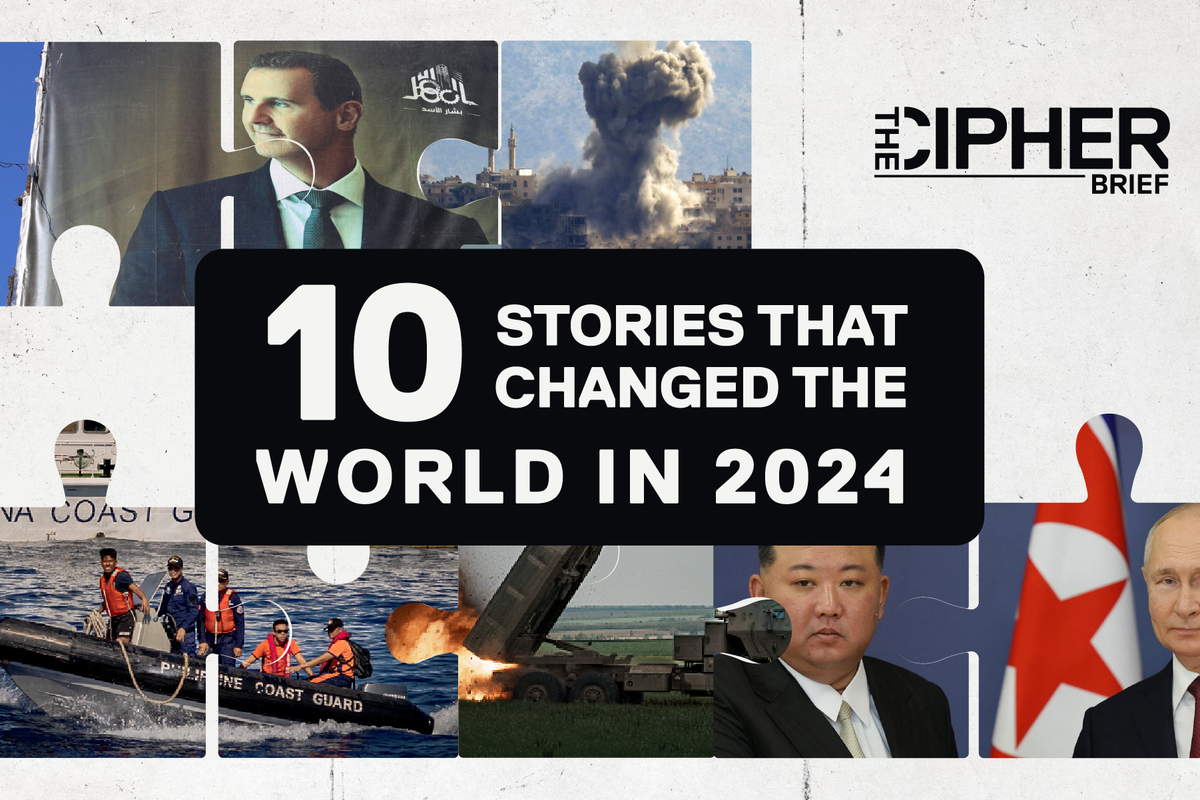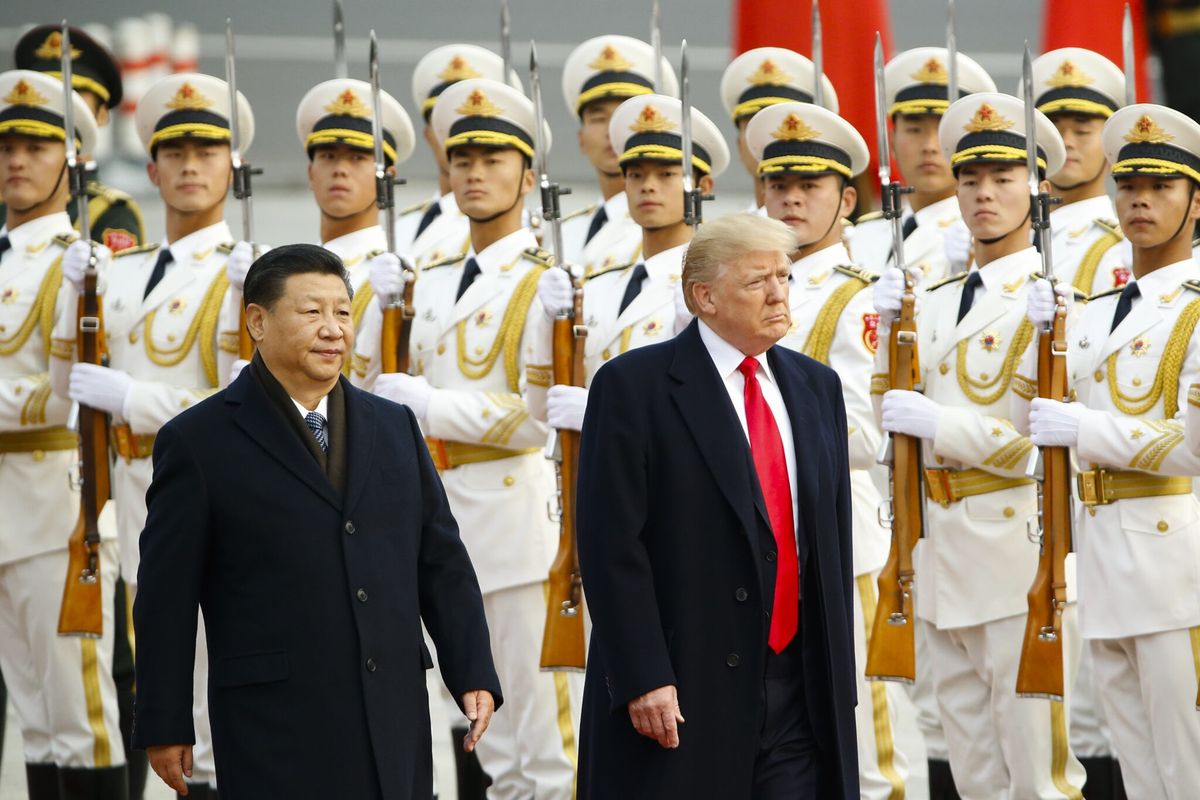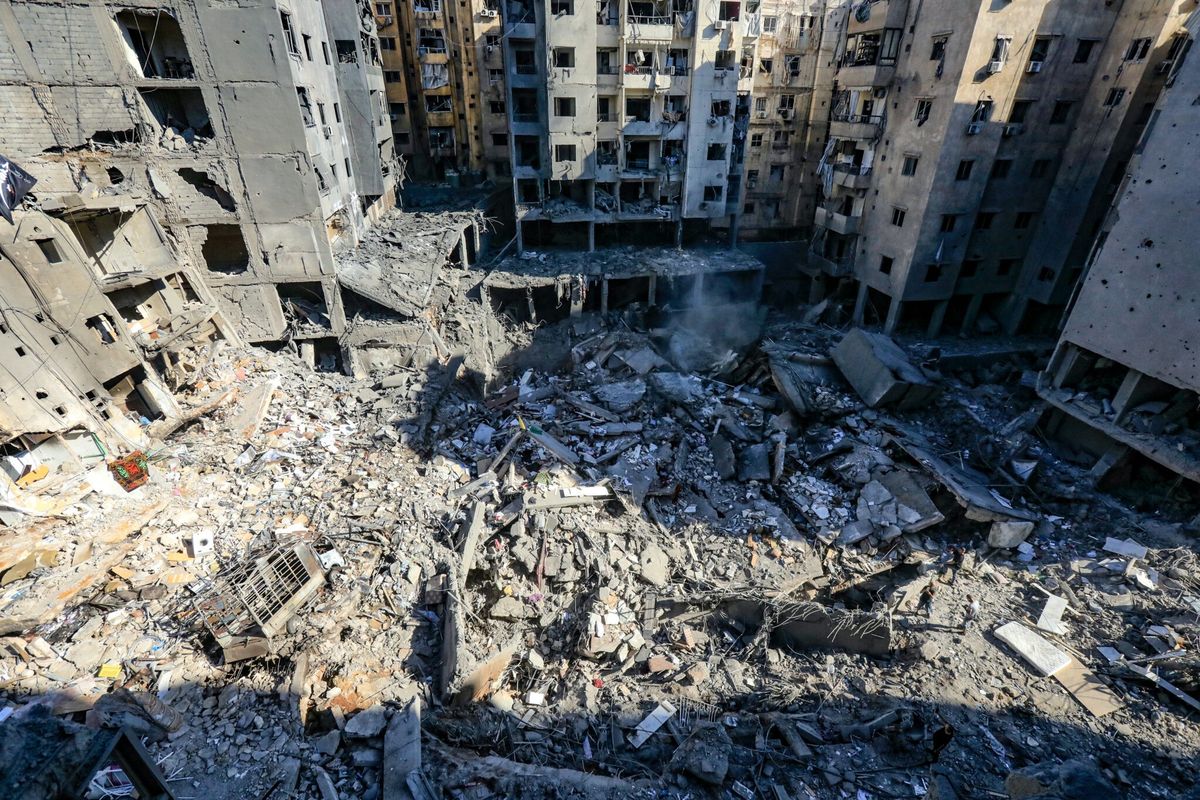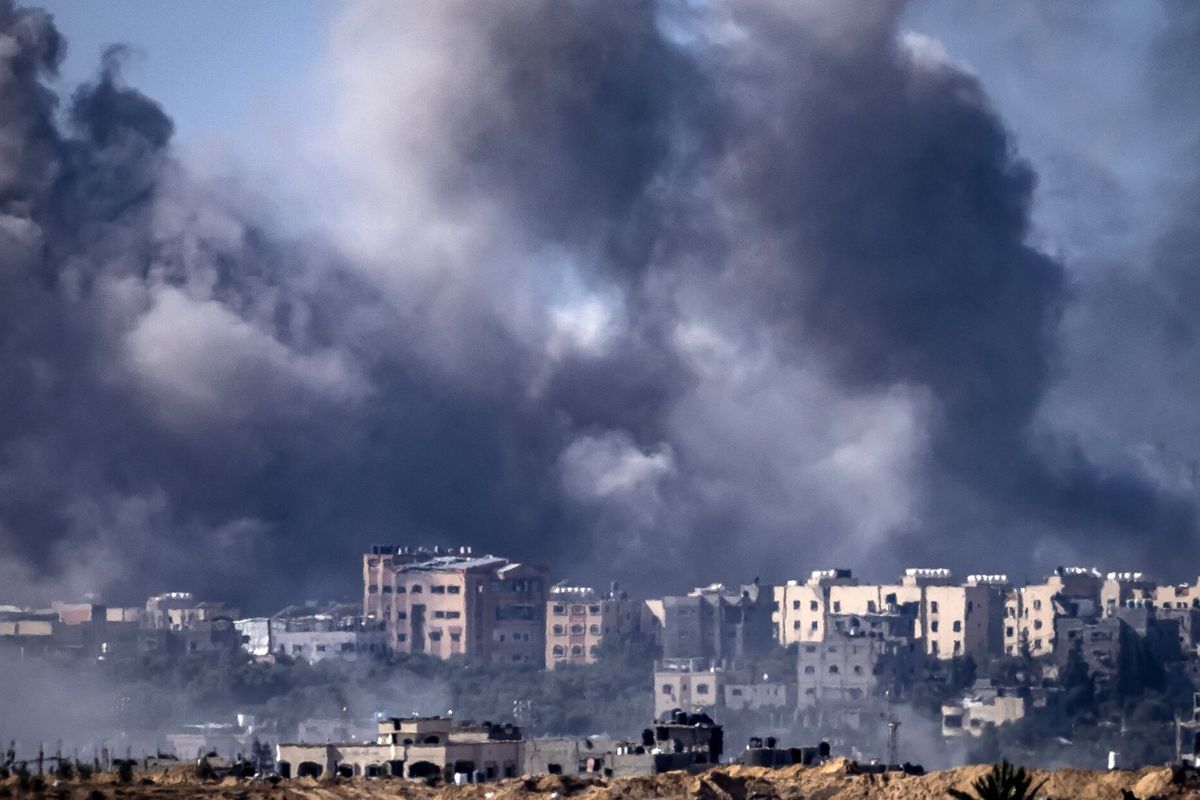SUBSCRIBER+ EXCLUSIVE INTERVIEW - It’s been a fear since Hamas’ October 7 raids and massacre in Southern Israel: The powerful Hezbollah militia in southern Lebanon would declare its own war on Israel in support of Hamas, unleashing its considerable arsenal and forcing Israel to fight a two-front war.
In the days and weeks that followed the October 7 attacks, Hezbollah vowed to support Hamas, but in a much-anticipated address in November, the Hezbollah leader Hassan Nasrallah fell short of declaring war against Israel. For months the situation on the Israel-Lebanon border was a low-boil conflict of strikes and counter-strikes - enough to compel the evacuation of more than 150,000 people on both sides, but far less than had been feared.
Until this week.
Israel’s military launched strikes against Lebanon for a second day Thursday, targeting compounds and other assets belonging to the Hezbollah militia group. The Israelis blamed Hezbollah for rocket attacks earlier in the week, one of which hit Israel’s Northern Command headquarters in Safed, killing an Israeli soldier and wounding eight other people. Officials in Safed said rockets also struck the city’s industrial zone and an area near Ziv Hospital.
The attack carried additional significance because Safed lies outside the evacuation zone where most of Hezbollah’s prior strikes had landed.
Late Wednesday, only a few hours after the Safed attack, Israel’s military said it had struck “a series of Hezbollah terrorist targets” in response. Those strikes reportedly killed at least 10 civilians in southern Lebanon. Hezbollah said three of its fighters had also been killed.
The cross-border exchanges were the heaviest since tensions spiked following the October 7 Hamas attacks. And both sides have warned that it could get worse.
Israel’s defense minister, Yoav Gallant, in a social media post Thursday, said Israel would use “diplomatic or military means” to secure its border. The Israeli military chief of staff, Lt. Gen. Herzi Halevi, said he had met with IDF commanders on the border with Lebanon and that “now we are focusing on being prepared for war in the north."
Earlier in the week, Benny Gantz, a member of Israel’s emergency war cabinet, said the IDF reserved the right to target not only Hezbollah targets but the Lebanese military as well. “There is no target or military infrastructure in the area of the north and Lebanon that is not in our sights.”
For his part, Nasrallah, the long-time Hezbollah leader, was blunt. “You escalate, we escalate,” he said Tuesday. That was before the Israeli strike. On Thursday, Hassan Fadlallah, a Hezbollah politician, said “the enemy will pay a heavy price for its crimes.”
Hezbollah and Israel have regularly traded volleys across the border - not only in recent months but for years before, in flare-ups that have only rarely led to full-scale conflict. Israel has launched invasions of Lebanon twice - in 1982 and 2006 - in response to heavy strikes from southern Lebanon.
The U.S. has spent enormous diplomatic energy trying to diffuse the various flashpoints of the current crisis. Secretary of State Antony Blinken and CIA Director William Burns have been engaged in shuttle diplomacy to bring about a ceasefire and the release of hostages in Gaza, while trying simultaneously to deter Houthi rebels from attacking Red Sea shipping and retaliating against other Iran-backed groups for their attacks on U.S. military facilities in the region.
The spike in Israel-Hezbollah tensions risks yet another widening of an already complicated Middle East conflict.
Late Wednesday, The Cipher Brief spoke with Glenn Corn, a former Senior Executive in the CIA who spent nearly two decades overseas and served as the President’s Senior Representative on Intelligence and Security issues. Corn noted the political pressures on the Israeli government to settle the security situation in the north - to “take care of it now,” but added that “I don’t think that they want to have a two-front war.”
Glenn Corn, Former Senior Intelligence Officer, CIA
Glenn Corn worked for 34 years in the U.S. Intelligence, Defense, and Foreign Affairs communities. He spent over 17 years serving overseas and served as the U.S. President’s Senior Representative on Intelligence and Security issues. He is an Adjunct Professor at the Institute of World Politics.
Our conversation has been edited for length and clarity.
The Cipher Brief: Help us put into context what could happen because of this escalation. A member of Israel's War Cabinet has said that Israel could strike at the Lebanese military. What would this mean in terms of broadening this conflict?
Corn: That would be a significant step if they go after the LAF, the Lebanese Armed Forces. Because one, that's an organization that has been trained and equipped by us and some of our European partners. And that would be significant.
Hezbollah launched a strike at a target called Safed, a military headquarters, which is outside of the zone where the Israelis have moved their civilians out of Northern Israel. My own assessment is that the Israelis are responding in kind. They've gone deeper into Lebanon, some of the open-source reporting is that they targeted a special forces unit, the Redwan Unit, which is considered among Hezbollah's elite. I think this is another message by the Israelis that, "We know where you are and we will come after you specifically, Hezbollah, and that if you're going to extend the range of your attacks then we are going do the same."
The Cipher Brief: Many of us were struck back in November, when Hassan Nasrallah made his big speech. A lot of people thought this was going to be the declaration of full-on war, that didn't happen. But he's also said in the last 48 hours, "You escalate, we escalate." What do you think will come next from Hezbollah?
Corn: Nasrallah is very calculating. He's a very intelligent man and politician, and I don't think he wants escalation. My assessment right now is that the Iranians who give him his orders are also telling him they don't want escalation.
I wasn't surprised when he came out in his speech and said a lot of stuff but didn't declare war, and the thousands of Hezbollah rockets weren't launched, because I don't think he wants that. He knows that the price for Hezbollah will be dramatic, that the Israelis will exact a very, very high price on the Shia community in Lebanon - and all of Lebanon.
The Cipher Brief: And just to press that a little bit more, it seems the Israeli retaliation today, eight areas hit, some Hezbollah compounds hit, some civilians killed - it’s hard to gauge, but in terms of the escalatory staircase, is that small-scale enough for him politically to keep, as you have just said, from taking this to another level?
Corn: Yes. What I read right now, I don't think he's in a position where he has to escalate any further. Now he has said that they are not going to stop until there's an armistice in Gaza, until the Israelis stop their operations there. And we all see that the Israelis are continuing their operations, and are going to a new phase.
So I think that this tit-for-tat, and I hate to use that word because people are being killed, but this constant back-and-forth, which has been going on for years by the way, between Hezbollah and the Israelis, will continue. But right now I don't think that there is anything that the Israelis did that would force Nasrallah, or the Iranians to tell Nasrallah to open up a wider campaign, which in turn would result in a large response by the Israelis.
The Cipher Brief: So then let’s come to Israel, and to Benjamin Netanyahu. One would think from a distance the last thing that man wants or needs or the IDF wants or needs right now is another front in the war. On the other hand, he's under all sorts of political pressures, including some on the right who are screaming for a heavier hand against Hezbollah.
Corn: I think we saw that there was some media reporting after October 7, that some in the Israeli national security establishment had lobbied for, and proposed a campaign in the north against Hezbollah to deal with the problem before the problem struck at Israel. And I think the reporting was that there was pressure on them not to do that, and the decision was made not to open up a major front in the north while they were also fighting in the south.
The Israelis are under major economic pressure to get residents back into their homes in the north. This is costing them money and it's costing those families a lot of stress, and I'm sure there’s political pressure on Netanyahu. And so I think they want at least a situation where they can bring the families back. And that's why I think this strike upset the Israelis because it's even going beyond that border area.
There are a lot of negotiations going on right now between the U.S., the Europeans, the Lebanese government, and the Israelis to come to an agreement on northern Israel and the south of Lebanon. I think the U.S. and European proposal is that Hezbollah, and of course the Israelis, pull back from the border and then that will reduce the tensions and allow the Israelis to move their settlers back.
The Cipher Brief: Just how prepared is Israel, or aren't they, for a two-front war?
Corn: Israel is capable, but I they're going to be looking for a lot of support from the U.S. Which is one reason I don't think that they want to have a two-front war. I mean, nobody should want to have a two-front war. And my guess is that within the establishment, the national security establishment in Israel, there are a lot of people arguing that we need to settle scores with Hamas and manage this conflict in the north, which we've been doing for years. But there are probably those voices that are saying, "Let's just go and take care of it now, because we may have another October 7 in the north in a year from now."
The Cipher Brief: A question about the United States. (Secretary of State) Tony Blinken and (CIA Director) Bill Burns are traveling the region, trying to avoid wider wars on other fronts - the Houthis and the Islamic Resistance and all the rest. What leverage does the United States have in this particular moment, with the situation along that particular border?
Corn: The U.S. has leverage, though I'm concerned we're losing leverage for a number of reasons. I'm sure Hezbollah knows that if the United States wants to, we can be very effective in exacting a price from them if they cross a red line for Washington.
Recent strikes in Iraq, especially removing a senior Kataib Hezbollah commander, demonstrates that when we want to, we can conduct very effective military operations. The Israelis have done a brilliant job with targeted strikes against members of Hamas and Hezbollah. People in the region should remember that we can do the same thing. We've done it before, we can do it again if there's the political will.
For Nasrallah and the people around him, and of course the people in Tehran that give him his orders and his support, they need to really think hard. Do they know what the red line is for Washington? And are they willing to cross it?
Read more expert-driven national security insights, perspective and analysis in The Cipher Brief














